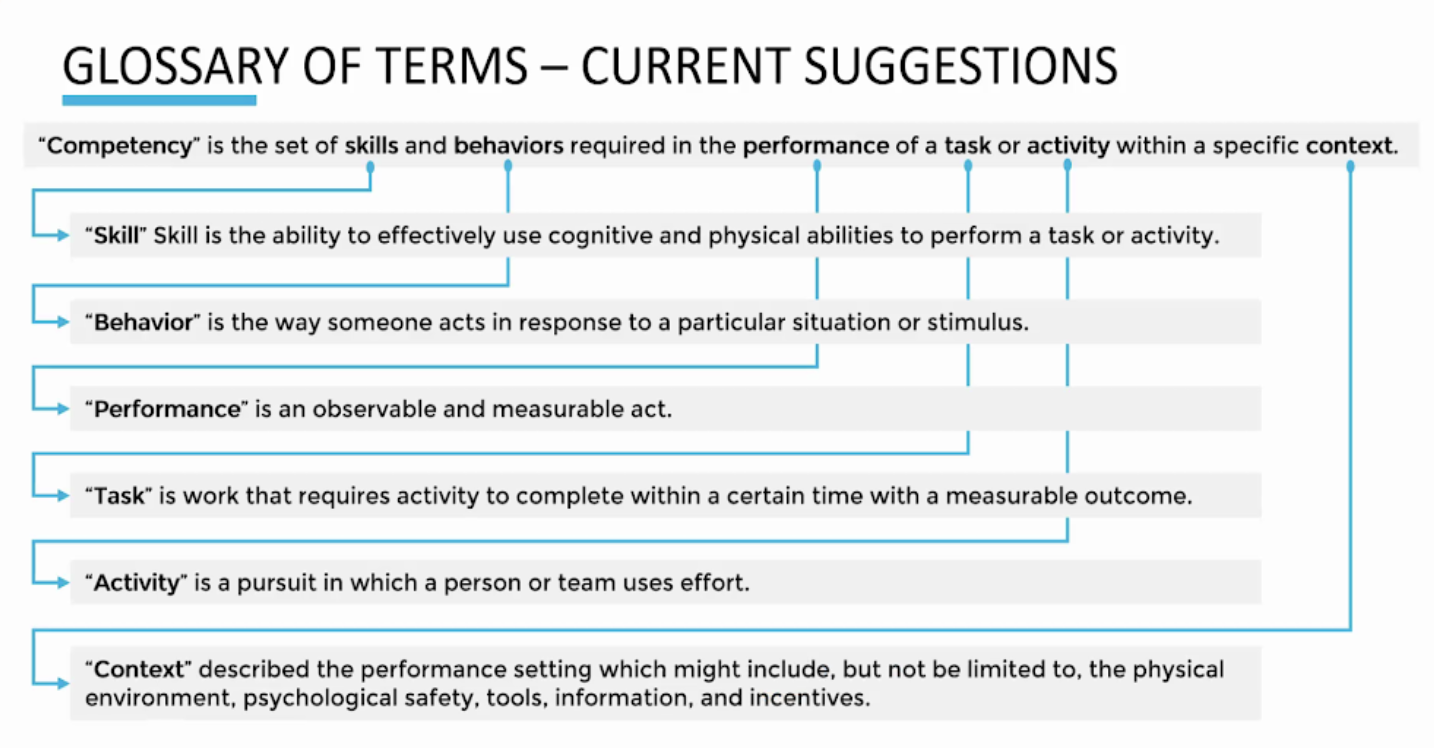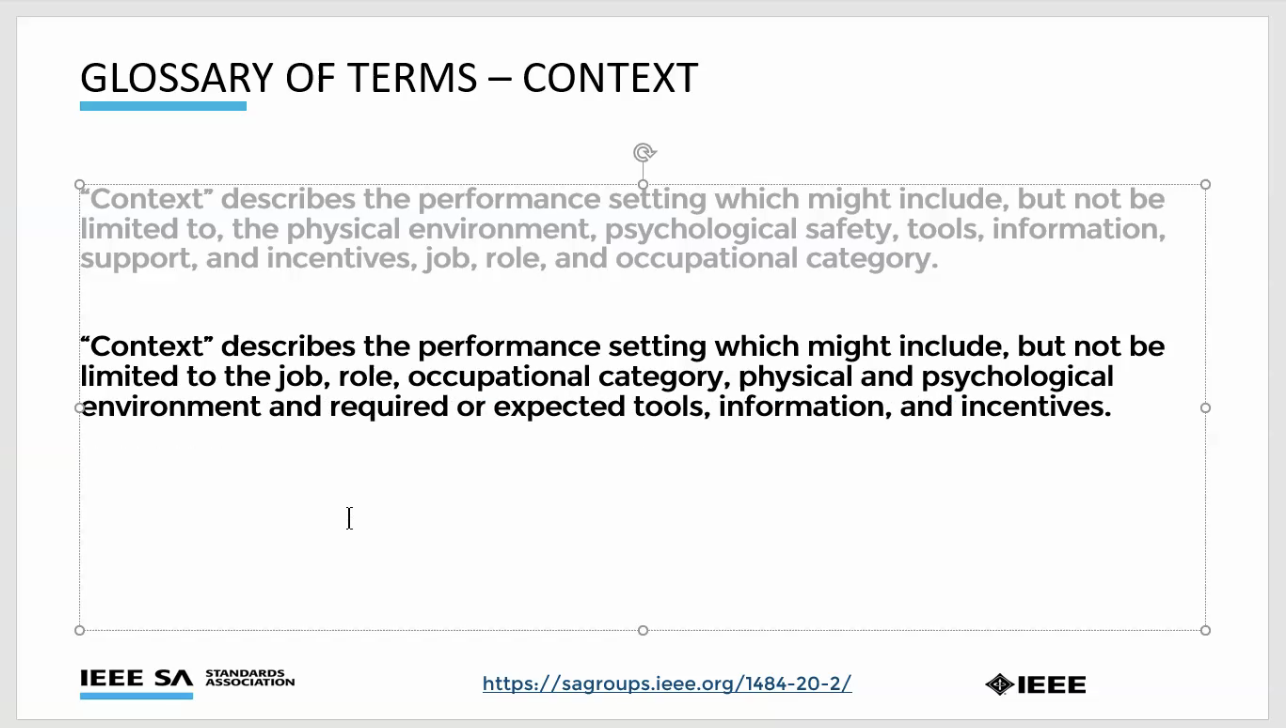What are skills? What are competencies? An update on the IEEE 1484.20.2 work on defining competencies
Steven Forth is co-founder and managing partner at Ibbaka. See his skill profile here.
One important advance in the world of skill and competency management that we are anticipating for 2021 is the new IEEE standard 1484.20.2 Recommended Practices for Defining Competencies. There is a great deal of discussion in the industry around terms skill vs. competency. Some people use the terms interchangeably. Some see skills are the more fundamental concept, the one that will make true career development and job mobility possible. Others see competencies as the key concept and are focussed on developing competency models and finding ways to use them.
The IEEE standard for defining competencies has begun its work by defining terms. This has been an interesting process to follow (and contribute to). The chair Eric Shepherd has done an excellent job of listening and then synthesizing the diverse ideas into a coherent set of definitions.
Here is what was presented in December.
I like this a lot, both in the clarity of definitions and how they are being connected. It is not perfect, it never can be. Personally, I was concerned that ‘context’ include the work context of jobs and roles.
At Ibbaka, we see jobs as bundles of roles (among other things). By designing jobs as bundles of roles one can make job architectures more flexible and improve internal mobility. Of course jobs are not the only place roles are a relevant construct. There are also project or team roles and ad-hoc roles. One can even extend this to include community roles. There are some user stories for competencies in support of communities.
In the first session in January some additional work was done on ‘context.’
This is getting a bit wordy, it feels like it was written by a committee (it was) and the final version may be tightened, but I think it does a good job addressing the many aspects of ‘context’ in the context of skills and competencies.
My favorite definition of skills and competencies also comes from Eric Shepherd, who once told me that ‘competencies are skills in context’!
The IEEE process has gone a bit beyond this. It defines competencies as a bundle of skills and behaviors, required for performance of a task or activity, in a specific performance context. Context is defined broadly to include all the things that make performance meaningful and doable.
I think this is a good set of definitions to carry work forward.
Other work being done for this standard are clarification of all of the different ways competency definitions can be connected into clusters (I prefer the terms model for dynamic systems and frameworks for more static approaches), the user stories for both competency cluster and competency definitions in general, some guidance on best practices and how to apply the other IEEE competency standard 1484.20.1 Data Model for Reusable Competency Definitions (which is currently being updated).
What do you think? Will a common definition of skills and competencies help you with your own work? How are you developing and applying skill and competency models? What problems are you trying to solve?
Contact us at info@ibbaka.com and we can start a conversation.











